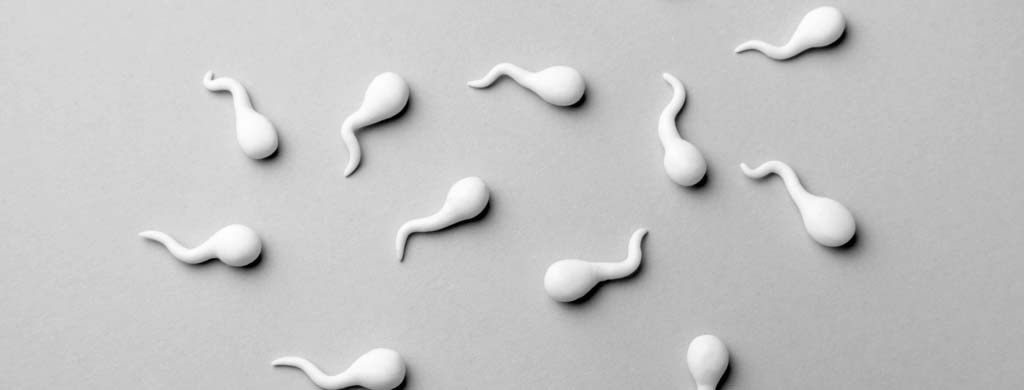When a person ejaculates, the seminal fluid, also known as semen, is released from the body. Semen contains various components, including proteins, such as enzymes, amino acids, fructose, and other substances that help support and nourish sperm. However, the amount of protein lost through ejaculation is typically minimal and not a significant factor in a person’s overall protein levels.
The proteins in semen are a small fraction of the total proteins in the body. While there might be a slight loss of some proteins through ejaculation, the impact on the body’s overall protein levels is negligible. The body continually synthesizes and recycles proteins through dietary intake, and the loss of proteins through ejaculation is generally not a concern for protein deficiency.
If someone is concerned about maintaining adequate protein levels, it’s essential to focus on a balanced diet that includes sources of protein such as lean meats, fish, poultry, dairy products, legumes, nuts, seeds, and certain grains. Meeting daily protein needs through a well-rounded diet is far more critical than worrying about the slight protein content in semen.
What Proteins Compose Seminal Fluid?

Seminal fluid, also known as semen, is a complex fluid that consists of various components, including proteins. The proteins present in seminal fluid serve several functions, such as nourishing and protecting sperm as well as aiding in their motility and fertility. Some of the proteins found in seminal fluid include:
Prostate-Specific Antigen (PSA): PSA is an enzyme produced by the prostate gland. It helps to liquefy semen after ejaculation, aiding in the movement of sperm.
Seminalplasmin: This protein possesses antimicrobial properties, helping to protect sperm from potential infections within the male reproductive system or the female reproductive tract.
Seminal Vesicle-Specific Antigen: Proteins secreted by the seminal vesicles contribute to the formation of seminal fluid and play a role in sperm motility.
Fibrinogen: This protein helps semen coagulate after ejaculation, aiding in sperm retention within the female reproductive tract.
Prostate-Specific Acid Phosphatase (PSAP): Another enzyme produced by the prostate gland, PSAP contributes to the breakdown of organic phosphates.
Prostaglandins: These lipid compounds act as signaling molecules and are involved in various reproductive processes, including uterine contractions that may aid in sperm movement through the female reproductive tract.
These proteins, along with other components like sugars, ions, and other enzymes, collectively contribute to the composition of seminal fluid, providing an optimal environment for sperm survival, motility, and fertility.
How Much Protein Is Present in Semen?
The protein content in human semen can vary depending on individual factors such as diet, health, and other physiological aspects. On average, the protein concentration in human semen typically ranges from about 20 to 150 milligrams per milliliter (mg/mL) or approximately 2 to 15 grams per ejaculate.
The protein content in semen is not solely composed of a single type of protein but is a combination of various proteins, enzymes, and other compounds. Proteins like prostate-specific antigen (PSA), seminalplasmin, and others contribute to the overall protein content in semen, albeit in different proportions.
It’s important to note that the concentration of proteins and other components in semen can vary among individuals and may also be influenced by factors such as age, diet, overall health, frequency of ejaculation, and certain medical conditions.
How Does the Body Manage Protein Metabolism?

Protein metabolism involves the processes of synthesis, breakdown, and utilization of proteins in the body. It is a dynamic and tightly regulated process essential for various bodily functions, including growth, repair, immune function, enzyme production, and the maintenance of proper fluid balance.
Protein Synthesis
Transcription and Translation
Protein synthesis starts with the transcription of DNA into messenger RNA (mRNA) in the cell nucleus. The mRNA carries the genetic information to the ribosomes, where translation occurs. Amino acids are assembled into polypeptide chains according to the instructions encoded in the mRNA.
Ribosomes and Transfer RNA (tRNA)
Ribosomes, composed of RNA and proteins, facilitate the translation process by reading the mRNA and linking amino acids together with the help of transfer RNA (tRNA), which carries specific amino acids to the ribosome.
Protein Folding and Modification
After the polypeptide chain is synthesized, it undergoes folding and modification processes to attain its functional three-dimensional structure.
Protein Breakdown (Proteolysis)
Ubiquitin-Proteasome System
Proteins in the body have a certain lifespan and are constantly degraded by cellular machinery. The ubiquitin-proteasome system is a major pathway responsible for breaking down unwanted or damaged proteins. Proteins tagged with ubiquitin are targeted for degradation by the proteasome.
Autophagy
This process involves the degradation of damaged or unnecessary cellular components, including proteins, through the formation of autophagosomes, which fuse with lysosomes for breakdown and recycling.
Protein Utilization and Regulation
Amino Acid Pool
Amino acids released from protein breakdown are used to build new proteins or are converted into other compounds based on the body’s requirements. An amino acid pool exists in the body, providing a reserve for protein synthesis and serving as precursors for various metabolic pathways.
Hormonal Regulation
Hormones like insulin, glucagon, growth hormone, and cortisol play significant roles in regulating protein metabolism. For instance, insulin promotes protein synthesis, while cortisol may increase protein breakdown in certain conditions.
Dietary Intake
The body’s protein metabolism is influenced by dietary protein intake. Adequate protein consumption is necessary to maintain the body’s protein balance and support various physiological functions.
Nitrogen Balance
The balance between the intake and loss of nitrogen, a component of amino acids, is used as an indicator of overall protein balance in the body. Positive nitrogen balance occurs when protein intake exceeds protein breakdown, often observed during growth, recovery from illness, or pregnancy. Negative nitrogen balance occurs when protein breakdown exceeds intake, as seen during periods of starvation, illness, or insufficient dietary protein intake.
The body’s management of protein metabolism is intricate and relies on a delicate balance between synthesis and breakdown, influenced by various factors to maintain overall health and function.
FAQ’s
Is it safe to drink sperm every day?
Drinking sperm daily isn’t recommended. While it contains some nutrients, it’s not a reliable or advisable source of nutrition and might pose health risks.
Is it good to hold sperm for a long time?
Holding sperm for extended periods isn’t healthy. It can cause discomfort and doesn’t offer any health benefits.
Is sperm beneficial to eat?
There’s no scientific evidence supporting health benefits from eating sperm. It’s not considered a nutritious or safe dietary choice.
Is sperm good for my wife?
Whether sperm is beneficial for your wife’s health varies. If she isn’t allergic to semen, it generally doesn’t pose a health risk during regular intimate contact.
How much protein is in a teaspoon of sperm?
The protein content in a teaspoon of sperm is typically minimal, usually less than 1 gram.
How to use sperm to cure pimples?
There’s no scientific basis for using sperm to treat pimples. In fact, applying semen to the skin can potentially lead to skin irritation or infections, and it’s not recommended for skincare purposes.
Final Words
To sum up, when you ejaculate, only a little bit of protein comes out. But this doesn’t really affect how much protein your body has. The proteins in the stuff that comes out when you ejaculate are important for making sure sperm stay healthy. But compared to all the proteins in your whole body, it’s just a tiny bit. Your body is good at making and using proteins, so losing a little bit this way doesn’t cause any big problems.
Eating good food with enough protein is still really important for your body to stay healthy, even if you ejaculate. So, don’t worry too much about losing a little bit of protein this way!

